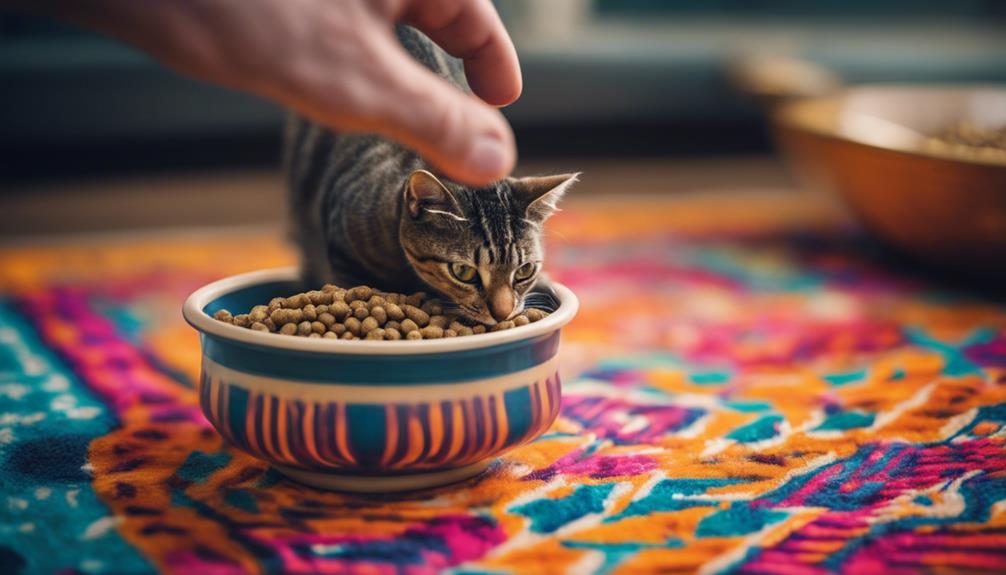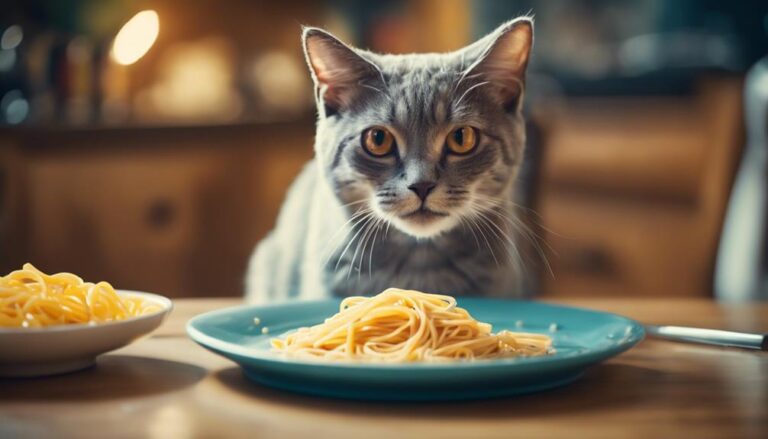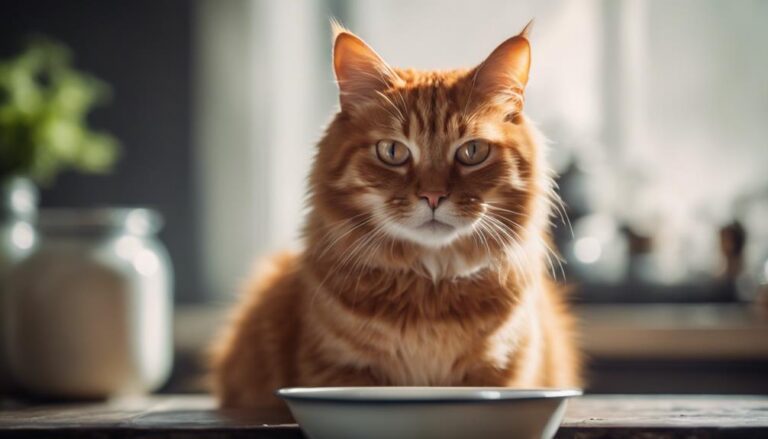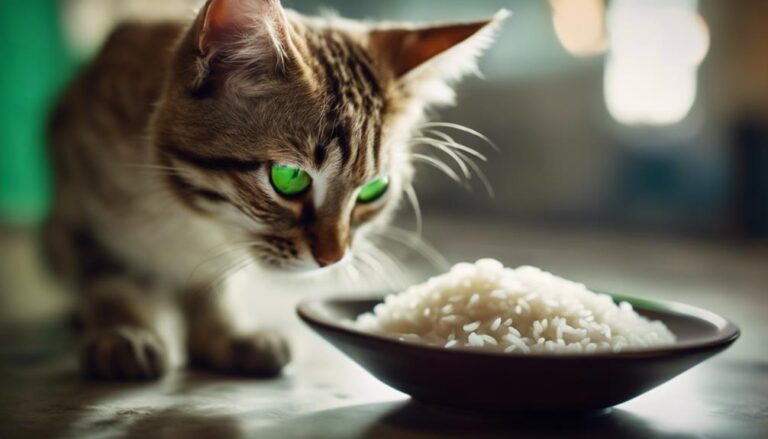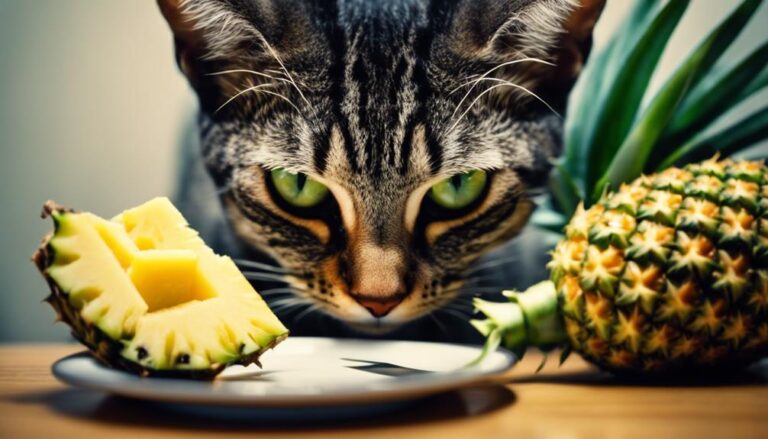When it comes to feeding your feline friend, it's essential to consider more than just filling up their bowl. The type of food, feeding schedule, and portion sizes all play a crucial role in maintaining your cat's health. But have you ever wondered about the impact of feeding habits on their behavior and overall well-being? Let's explore how proper feeding routines can influence not only your cat's physical health but also their mental and emotional state. Understanding these connections might just change how you approach feeding time with your beloved pet.
Importance of Nutrient Balance
Balancing essential nutrients in a cat's diet is crucial for their optimal health and well-being. Cats, being obligate carnivores, have specific nutritional requirements that must be met through their food. Providing a diet that's rich in essential nutrients is essential to support their overall health and longevity. When feeding your cat, it's important to ensure that they're receiving a balanced nutrition that includes proteins, fats, vitamins, and minerals in the right proportions.
Water is another vital component of a cat's diet. Clean and fresh water should always be readily available to prevent dehydration and support proper kidney function. Hydration is key to maintaining your cat's health and well-being. When selecting cat food, prioritize options that not only provide essential nutrients but also promote hydration.
Selecting High-Quality Cat Food
When selecting high-quality cat food, consider the manufacturer's reputation and the AAFCO statement as indicators of its quality. The AAFCO statement shows that the food meets the nutritional needs of adult cats. Look for high-quality food that includes essential amino acids and has an adequate moisture content, especially in wet food.
Manufacturers with a good reputation are more likely to produce reliable products. AAFCO conducts feeding tests to evaluate the quality of cat food, ensuring it meets the required standards. Remember to focus on nutrients rather than just ingredients when choosing between dry food and wet food.
High-quality cat food provides a balanced combination of proteins, fats, carbohydrates, vitamins, and minerals, all essential for your cat's health. By paying attention to these factors, you can ensure you're providing your feline companion with the best possible diet.
Monitoring Feeding Times and Portions
To monitor your cat's feeding times and portions effectively, aim to feed them twice a day with controlled amounts to prevent obesity. It's essential to evaluate your cat's body condition regularly to adjust portion sizes accordingly.
Consistency in feeding times helps establish a routine and prevents overeating. When feeding adult cats, consider using portion control methods such as timed feeding or controlled portions to maintain a healthy weight.
Both dry and wet foods can be used, but always ensure that the total daily intake aligns with your cat's nutritional needs.
Weight Management and Treats
Maintaining an ideal weight for your cat involves careful management and monitoring of their food intake, including treats. Obesity affects one in five cats in industrialized countries, emphasizing the importance of weight management in feline nutrition. To prevent weight gain and nutrient deficiencies, treats should make up less than 10% of your cat's daily caloric intake.
Implementing playtime and controlled food portions are essential for effective weight management. Using body condition scoring systems can help you evaluate and maintain your adult cat's ideal weight. Keep a close eye on excessive treats, as they can contribute to weight gain and potential health issues.
Wet Food for Specific Health Conditions
If your cat has specific health conditions like urinary tract problems, diabetes, or kidney disease, incorporating wet food into their diet can be highly beneficial. Wet food is advantageous for cats with urinary tract problems as it increases water intake, helping to dilute urine and prevent crystal formation.
The high moisture content in wet food also promotes hydration, which is essential for cats with kidney disease. Additionally, wet food is recommended by veterinarians to support the overall well-being of cats with these specific health conditions.
Vet Consultation for Nutritional Guidance
For tailored nutritional advice that suits your cat's specific dietary requirements and health concerns, consulting a veterinarian is crucial. Vet consultations for nutritional guidance can provide valuable insights into selecting balanced commercial foods or formulating homemade diets that meet your cat's nutritional needs. This personalized approach helps prevent nutrient deficiencies or excesses that could adversely affect your cat's health.
Vets consider factors such as age, weight, activity level, and existing health conditions when making recommendations for your cat's diet. By seeking regular vet consultations for nutritional guidance, you can ensure that your cat's diet is optimized to promote overall well-being and longevity.
Remember that a vet's expertise is instrumental in designing a nutrition plan that caters to your furry companion's specific requirements, helping them thrive and stay healthy for years to come.
Frequently Asked Questions
How Many Times a Day Do You Feed a Cat?
You feed a cat based on its age and needs. Kittens thrive with three meals daily. Adults do well with one or two feedings. Senior cats benefit from a consistent feeding schedule. Stick to a routine for their health.
What Is the Best Way to Feed Cats?
When it comes to feeding cats, it's essential to consider meal feeding for proper portion control and to prevent overeating. This method allows you to monitor food intake closely and ensures each cat gets the right nutrients.
How Much Do I Need to Feed a Cat?
To properly feed a cat, consider their age, activity level, and health. Kittens need more frequent meals for growth. Adults can eat once or twice a day. Seniors benefit from a consistent feeding routine. Adjust as needed for health.
Should You Leave Dry Cat Food Out All Day?
You shouldn't leave dry cat food out all day. It can lead to overeating, obesity, and urinary issues. Controlled meal feeding times help regulate portions and encourage natural feeding behaviors in cats, promoting better health.

